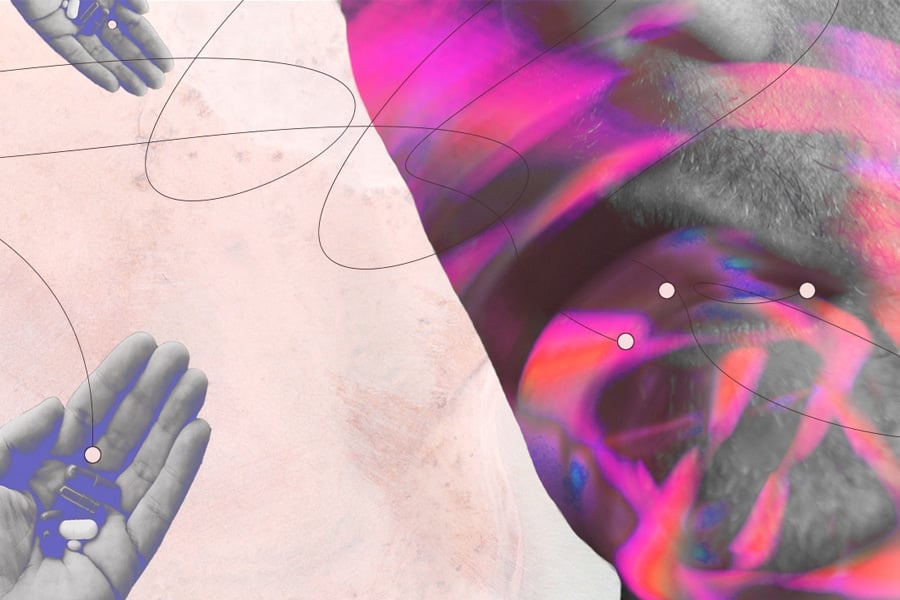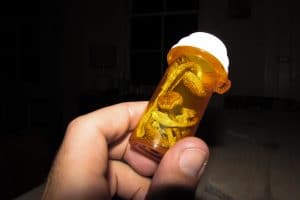A Canadian company will announce on Monday (September 16) the development of a synthetic drug based on the chemical structure of ibogaine, a psychedelic with a long history of ceremonial use. Mind Medicine Inc. (“Mindmed”) is betting that 18-MC (18-methoxycoronaridine) will be a powerful tool to fight addiction and opioid use disorder.
The potent dissociative drug ibogaine occurs naturally in a few plants in Africa and South America, but it’s unique among psychedelic alkaloids. While research is still premature, after a single ingestion ibogaine can allegedly snap someone out of the throes of addiction.
Mindmed obtained the rights to 18-MC from the California-based pharmaceutical startup Savant HWP Inc., through an acquisition merger. Savant’s researchers and drug developers will join Mindmed as part of their clinical development team.
The National Institute on Drug Abuse (NIDA) previously funded Savant’s 18-MC drug development program to the tune of $6.7 million in 2012, however, the program included only one clinical trial. Mindmed is not only planning Phase II FDA-approved trials using 18-MC to target opioid use disorder, but also has plans to explore LSD, psilocybin—the psychoactive component in shrooms, and ketamine to treat mental health.
In Bwiti, a religious subculture originating in West Central Africa, ibogaine is a sacrament used in healing ceremonies. The trance-like state that results from eating the dried root bark of iboga, the perennial rainforest shrub that contains ibogaine, is considered “a crucial moment in Bwiti therapy,” according to recent research published in the journal Mental Health, Religion & Culture.
Since at least 1955, researchers have been exploring the drug’s usefulness in treating substance use disorders. Preliminary research in rodents and humans suggests ibogaine can rapidly eradicate cravings for alcohol, cocaine, nicotine, and opioids—but how the drug accomplishes this remains poorly understood. While ibogaine has yet to see mainstream clinical use, some people have opened alternative wellness clinics in places where the drug is legal, such as Mexico or New Zealand. In Canada, ibogaine is legal to possess, but not to sell.
How to Grow Shrooms Bundle
Take Both of Our Courses and Save $90!
However, unlike most psychedelics, ibogaine is known to be toxic to the heart, sometimes even days or weeks after administration, which can be life-threatening if patients are not properly screened before and after use. Fatalities are rare, but not unheard of, while in 2015, doctors at the Medical University of Vienna recommended that people who take the drug should be under constant medical supervision.
18-MC does not seem to have these same toxic issues. In fact, it allegedly doesn’t cause the intense hallucinations and discomfort ibogaine is known for, yet still has the same anti-addictive effects. In Savant’s sole Phase I clinical trial, they found 18-MC was safe in humans. While in Bwiti belief, ibogaine’s hallucinations are central to healing, that may not be the case with 18-MC’s ability to reduce drug cravings, which may give the synthetic broader appeal.
“We believe that hallucinogenic therapies also have great merit and benefits for treating addiction, but undergoing a ‘psychedelic trip’ might be a daunting proposition to some patients,” Jamon R. Rahn, Mindmed co-founder and director, said in a press release. “After successful clinical trials, we intend for our non-hallucinogenic medicines derived from psychedelics to be prescribed by physicians and for patients to pick them up at their local pharmacy, greatly increasing the economics and accessibility of such medicines.”
Those clinical trials are slated to begin next year. In a phone call, Rahn told DoubleBlind that Mindmed will be exploring other non-hallucinogenic psychedelics, as well as potentially exploring other applications for 18-MC. It’s been shown to treat leishmaniasis, a parasitic disease spread by sandflies.
“We’ve also been approached to look at nicotine dependence related to the recent teen vaping crisis,” Rahn said. But because psychedelic research in the United States is still “fringe,” he added, Mindmed is working in Canada. “The traditional biopharmaceutical or neural pharmaceutical investors are just not really interested in the space at the moment,” he said. “Canada understands that [even though] something might appear to be fringe, it could become a very big market.”

DoubleBlind is a trusted resource for news, evidence-based education, and reporting on psychedelics. We work with leading medical professionals, scientific researchers, journalists, mycologists, indigenous stewards, and cultural pioneers. Read about our editorial policy and fact-checking process here.

DoubleBlind Magazine does not encourage or condone any illegal activities, including but not limited to the use of illegal substances. We do not provide mental health, clinical, or medical services. We are not a substitute for medical, psychological, or psychiatric diagnosis, treatment, or advice. If you are in a crisis or if you or any other person may be in danger or experiencing a mental health emergency, immediately call 911 or your local emergency resources. If you are considering suicide, please call 988 to connect with the National Suicide Prevention Lifeline.



